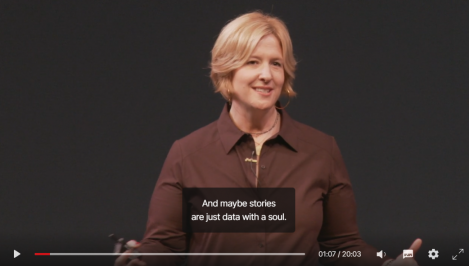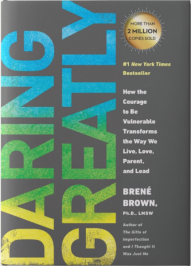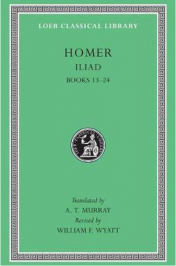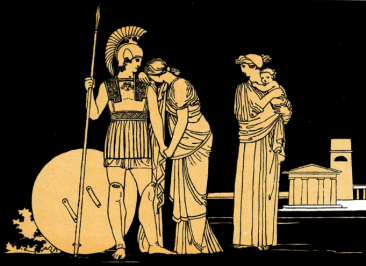— This blog post was written by Dr Tine Scheijnen, postdoctoral researcher.
Saturday night tears
Over the past weekend, I found myself weeping in front of the telly again. Dr Who (I will let you guess which season I’m watching) was unable to rescue one of his companions, and as his heart was broken from grief, so was mine. I like hero stories; especially ones which move me like this. What makes it even better is that this is my job. I am a literary scholar. When I recently came across the question whether “maybe stories are just data with a soul”, it immediately struck me as true. For me, they are. I work to unravel narrative methods and textual techniques, but I also allow myself to be drawn into the story. Personal involvement fuels my interpretation. Text-based argumentation and personal reader-perspective together open up dialogue, and dialogue keeps literature alive.

So what is it about heroes that makes them so appealing? I do not think it is their ability to transform, to fly wearing a cape, or to lift an entire building. Admittedly, all of this helps: it makes them supernatural, extraordinary, worth talking about. But would we read their story, or watch it, or tell it to others with equal eagerness and joy if it all went flawlessly, without effort, and always resulted in a happy ending? There is appeal in that single tear rolling down the Doctor’s cheek when he has to say goodbye. The perfectly imperfect hero. Although he is not above pain and heartbreak, he keeps trying. What would be the point if there were nothing to lose? Ancient heroes already sighed to each other: “if (…) we were forever to be ageless and immortal, I should not fight among the foremost, nor should I send you into battle” (Homer’s Iliad 12.322-325).(1) Vulnerability provides meaning. When we read hero stories, we recognize this implication. In countless different definitions of heroism across cultures, eras, and ideologies, this element keeps popping up. Heroes can and sometimes do get hurt. In that one detail, they are like us. We can relate. And from that connection, personal involvement starts: we sympathize, admire, judge; we feel and we learn what they inspire. That is what gives a soul to the story, and to my data.
I heard the quote about stories are data with a soul from Brené Brown, Professor of Social Work at the University of Houston, whose famous TED talks are all over the internet. She talks about very different stories than I do. Yet her theory about contemporary human functioning and one of my favorite ancient hero stories are not so different, and make for interesting conversation partners. What she studies may explain my reader sensation and a centuries-old feeling that literature taps into: the power of vulnerability.(2)


Always be the best?
Brené Brown explores the inextricable link between vulnerability and human connection. Indispensable in achieving this is the courage to deal effectively with emotions such as shame and guilt. Her basic message is that human beings are wired to feel connected to others; but that nowadays we often struggle to connect, because of shame: “I am unworthy; I am no good; I am not enough”. These fears have sadly become modern-day essentials (you may think of unrealistic body expectations for fashion icons or publication pressure in academia as examples), but they are much older than that. In fact, they could already apply to one of the key texts from Mediterranean literature: Homer’s Iliad, written down somewhere in the eighth century BCE after a long oral tradition had already shaped it. His heroes are tied up in a fierce battle – not just with swords and blood and slaying each other to survive, but with reputation and self-worth. To give you an idea: one of the Greek heroes was sent into war with the explicit instruction from his father to “always be the best” (Iliad 11.783-784). There is even a verb for it: aristeuein (from the Greek aristos – “best”). No pressure (!) Don’t we all recognize this today? I know I do: “most successful in battle” can easily be replaced by “(slightly) taller”, “(a bit) more retweeted”, “(I really should be) sportier”, and so on. Brown calls it the fear of “never enough”. The urge to seek our self-worth in external parameters (e.g. social media, money, or material stuff) may render us less satisfied with ourselves and thus, according to Brown, lonelier and unhappier. From that point of view, peer pressure is a killer. Homer knew this already.
I probably don’t need to introduce you to Hector. The big bulwark of the Trojan defense, skilled general, and hope-bringing prince is one of the Iliad’s most memorable heroes. In one of the central episodes of the epic, he is killed by Achilles. But what actually drove Hector towards his death, was shame: peer pressured shame resulting in sorrow, heartbreak, and a city destroyed. For Hector was a beloved husband and proud young father. As a warrior he was valiant, yet no match for Achilles. Why, then, did he ride out to face him? His wife confronts him with this question. Hector replies: “I feel dreadful shame before the Trojans (…) if like a coward I skulk away from the battle” (Iliad 6.441–443). Moreover, as a general, Hector has made mistakes; the kind that costs thousands of lives: he ignored strategic advice and made a wrong move on the battlefield, resulting in a high number of casualties for his army. When the moment comes, he would rather face Achilles than his fellow Trojans: “Since I have brought the army to ruin through my blind folly, I feel shame before them” (Iliad 22.104-105). Homer allows his audience this glimpse of Hector’s thoughts, to explain to them (and us) his deeply human emotional struggle. Having made this terrible mistake, he finds himself unworthy. He dreads what people might think of him: “perhaps some other man, baser than I, may say: ‘Hector, trusting in his own might, brought ruin on the army’. So will they say” (ibid. 106-108). Hector has a fear of not belonging, because of what happened. Brené Brown defines shame precisely as such a fear of disconnection. And Homer shows us the worst that could happen if that feeling wins.
Shame on you
There is nothing positive about shame. While guilt, in Brown’s definition, is an assessment of our behavior (“I did something bad”), shame instead focusses on our person (“I am bad”). The former, she argues, can be mended by learning from the mistake; although uncomfortable, guilt probes us to do better next time. Shame allows no room for improvement. It is a purely destructive sentiment. As Brown underlines, shame thrives when it is kept silent.(3) Shame is at its most effective when we don’t dare to talk about it. It keeps us lonely and away from others. This is Hector’s symbolical position, just before his confrontation with Achilles: he stands alone outside the city gates. From the top of the ramparts, his father calls out: “Hector, my dear child, I pray, do not face that man alone with no one to aid you (…) But come inside the walls, my child, so that you may save the Trojan men and Trojan women” (Iliad 22.38-39; 56-57). Priam tells his son that he is not alone, and that he could achieve more if he were to rejoin his community. He actually invites Hector to retreat and do better another time. Hector’s mother agrees: “Ward off that foeman from inside the wall, and do not stand to face him” (Iliad 22.84-85). Hector, however, does not respond. It is as Brown says: shame causes this desperate feeling of not being worthy of love or connection. As a result, we may show self-destructive behavior.(4) In this case, shame has Hector paralyzed outside the city walls. The opportunity to save his city (to do better after having learnt from his previous mistake – as guilt would have prompted him to do) does not outweigh the shame his heroic self-worth has suffered. And it will end badly. Homer, literary master as he is, describes the rest of the scene with a blood-curdling sense of pathos. When Achilles appears (a terrible sight of shining armour), Hector falters and runs. The narrator extensively delays his flight with twists and turns, dialogues between the gods, and imagery we could all relate to (remember those dreams where you try to run, but can’t move? That was Hector).(5) Finally, the gods trick Hector and he stops. Realizing his doom, he summons all of his courage to die with honour. Homer creates an emotional thriller in this scene. In a movie (well, not Troy from 2004, for Petersen deletes the fleeing part – perhaps it was deemed too shameful?), there would be suspenseful music, zooming in on Hector’s labored breathing or his fearful eyes contrasted with Achilles’ threatening approach, a dramatically slowed-down close-up of Hector’s final stand. As a reader (or viewer), we are emotionally drawn into the story. Who would not feel for Hector, admire his last moments, and meanwhile realize that the emotional rollercoaster he experiences, from shame over doubt into terror and acceptance, is deeply human? This episode is more than good story-telling; it functions as a mirror to us all.
Because you are worth it

Of course, we could interpret this scene from multiple angles. When you read the episode in its entirety (which I recommend), you will notice how rich it is: heroic ideal, parental sorrow, and a desperate thirst for revenge – not to mention divine interventions – also determine the events around Hector’s death. But shame is a thread (and a threat) deliberately woven into the scene. Several Iliadic scholars have tried to understand how shame would have functioned from a Homeric perspective. Dodds defined it as an emotion completely triggered by the external judgment of others: “anything which exposes a man to the contempt or ridicule of his fellows, which causes him to ‘lose face’, is felt as unbearable” (1951: 18).(6) Cairns suggests that shame “is, or perhaps better springs from, an internal state of conscience which is based on internal standard and an awareness of the values of society” (1993: 144).(7) The question I try to answer is decidedly different from that of Dodds or Cairns. My own reading starts from a 21st-century definition of the emotion of ‘shame’, as Brené Brown believes we experience it today. Her theory may not precisely be what Homer meant when he wrote his story thousands of years ago, but it can help us to understand how Homer’s Iliad may still appeal to readers of today.
Brené Brown brings a positive message: if we can rise above our shame and accept our imperfections – in short, if we can believe that we are “worth it” – then we can wholeheartedly connect with others. According to Brown, this is the challenge of the 21st century. According to Homer, the greatest heroes of his time faced the same struggle. In this blog, we have adopted a reader perspective – a continuously useful way to provide old stories with a fresh interpretation. Brown’s book came into my life because I sought inspiration for personal growth. However, there is no clean differentiation in my library between “books I use for literary research” and “books I read for leisure”. Even if I structured my shelves that way, what I have learned from Brown’s book has inadvertently influenced my reading of the Iliad. This is what readers do all the time: we draw our own messages from ancient writings. Homer touches the heart and teaches through the exploration of emotion. To allow him to do that, today and even tomorrow, is what keeps literature alive.
Footnotes
(1) Throughout, I use the Loeb Iliad translation (Murray & Wyatt 1924-1925), slightly adapted.
(2) For what follows, I mainly rely on Brown’s 2012 book Daring Greatly (translated into Dutch as De kracht van kwetsbaarheid).
(3) If you want to read more: the entire third chapter of Brown’s Daring Greatly is dedicated to the concept of shame.
(4) I read Brown’s book in its Dutch translation. This is my own paraphrase of a quote I found on page 78.
(5) Iliad 22.199-201.
(6) Dodds, E.R. [1951] 1964. The Greeks and the Irrational. Berkeley: University of California Press.
(7) Cairns, D.L. 1993. Aidōs: The Psychology and Ethics of Honour and Shame in Ancient Greek Literature. Oxford: Clarendon Press.